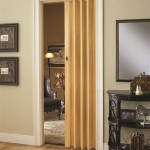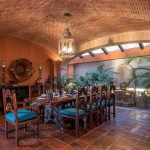Interior Commercial Doors: A Comprehensive Guide
Interior commercial doors play a crucial role in the functionality, aesthetics, and security of any business space. They are more than just passageways; they contribute to the overall design, create privacy, manage traffic flow, and can even improve energy efficiency. Understanding the different types of commercial doors available, their features, and their applications is essential for making informed decisions that align with the specific needs and requirements of a commercial building.
The selection process for interior commercial doors involves careful consideration of factors such as material, size, fire rating, accessibility regulations, and overall cost. This article aims to provide a comprehensive overview of interior commercial doors, covering various types, features, and considerations to assist in making the right choice for your commercial property.
Types of Interior Commercial Doors
Commercial buildings require a diverse range of door types to fulfill various purposes within the space. Each type offers unique benefits and is suited for different applications. Here's a detailed look at some of the most common types of interior commercial doors:
Hollow Metal Doors: These doors are a staple in commercial construction due to their durability, fire resistance, and affordability. They consist of a steel skin bonded to a core material, which can be honeycomb, polystyrene, or mineral wool. Hollow metal doors are often used in areas requiring high security or fire protection, such as stairwells, storage rooms, and exterior entrances.
Hollow metal doors offer a high degree of customization. They can be fabricated with various hardware preparations to accommodate different locking mechanisms, door closers, and panic hardware. They can also be painted in a wide range of colors to match the building's aesthetic. The durability of hollow metal doors makes them a cost-effective choice for high-traffic areas.
Wood Doors: Wood doors provide a warmer and more aesthetically pleasing option compared to metal doors. They are commonly used in offices, conference rooms, and other areas where appearance is a primary concern. Wood doors can be solid core or hollow core, each offering different levels of sound insulation and durability. Solid core doors are heavier and more resistant to impact damage, making them suitable for high-traffic areas. Hollow core doors are lighter and less expensive but offer less soundproofing and durability.
Wood doors come in a variety of wood species, including oak, maple, birch, and mahogany, each with its unique grain pattern and color. They can be stained or painted to match the surrounding decor. While wood doors are attractive, they require more maintenance than metal doors to prevent warping, cracking, and other forms of damage caused by moisture and temperature fluctuations.
Glass Doors: Glass doors are an excellent choice for creating a bright and open environment. They allow natural light to flow through the space, enhancing visibility and creating a more welcoming atmosphere. Glass doors are commonly used in retail spaces, offices, and waiting areas. They can be framed or frameless, with various options for glass type, including clear, frosted, tinted, and tempered glass.
Tempered glass is a safety glass that is much stronger than standard glass and shatters into small, blunt pieces when broken, reducing the risk of injury. Frameless glass doors offer a clean and modern look, while framed glass doors provide added structural support and can incorporate different hardware options. The level of privacy offered by glass doors can be adjusted by using frosted or tinted glass, or by adding blinds or curtains.
Aluminum Doors: Aluminum doors are lightweight, durable, and resistant to corrosion, making them a popular choice for exterior entrances and interior applications where moisture is a concern. They are often used in retail spaces, restaurants, and hospitals. Aluminum doors can be customized with various finishes, including anodized, powder-coated, and painted finishes. They can also be combined with glass panels to create a visually appealing and functional entrance.
Aluminum doors are available in a variety of styles, including swing doors, sliding doors, and folding doors. They are relatively low maintenance and can withstand heavy use. The thermal performance of aluminum doors can be improved by incorporating thermal breaks, which reduce heat transfer and improve energy efficiency.
Specialty Doors: In addition to the standard door types, there are also specialty doors designed for specific applications. These include fire-rated doors, soundproof doors, security doors, and cleanroom doors. Fire-rated doors are designed to withstand fire for a specified period of time, helping to contain the spread of fire and smoke. Soundproof doors are designed to reduce noise transmission, creating a quieter and more private environment. Security doors are designed to resist forced entry, protecting valuable assets and ensuring the safety of occupants. Cleanroom doors are designed to maintain a sterile environment in laboratories and other controlled environments.
The selection of specialty doors should be based on the specific requirements of the building and the activities that take place within it. Consulting with a door specialist can help determine the best type of specialty door for a particular application.
Key Features and Considerations
Selecting the right interior commercial door involves considering several key features and factors to ensure it meets the specific needs of the building and its occupants. These considerations encompass functionality, safety, accessibility, and aesthetics.
Fire Rating: Fire-rated doors are essential for maintaining fire safety within a commercial building. They are designed to resist fire for a specified period, typically ranging from 20 minutes to 3 hours. The fire rating of a door is determined by its construction and the materials used. Fire-rated doors are often required in stairwells, corridors, and other areas where fire containment is critical. It's essential to verify local building codes and regulations to ensure that the fire rating of the door meets the required standards.
Fire-rated doors must be installed with fire-rated frames and hardware to maintain their fire resistance. The door must be self-closing and self-latching to prevent the spread of fire and smoke. Regular inspections and maintenance are necessary to ensure that fire-rated doors continue to function properly.
Accessibility: The Americans with Disabilities Act (ADA) requires that commercial buildings be accessible to people with disabilities. This includes ensuring that doors are easy to open and navigate. ADA-compliant doors must have a clear opening width of at least 32 inches and require no more than 5 pounds of force to open. The door hardware must also be accessible, with levers or push plates that are easy to operate. Automatic door openers can also be installed to provide hands-free access.
The placement of door hardware is also crucial for accessibility. The hardware must be located within a reachable range for people using wheelchairs. Ramps or level thresholds should be provided to eliminate tripping hazards. Adhering to ADA guidelines is essential for creating an inclusive and accessible environment for all occupants.
Security: Security is a primary concern for many commercial buildings. The level of security required will depend on the nature of the business and the type of assets being protected. Security doors can be reinforced with steel plates and equipped with high-security locking mechanisms to resist forced entry. Access control systems can also be integrated into the doors to restrict access to authorized personnel only.
Security doors can be fitted with features such as biometric scanners, key card readers, and keypad entry systems. Surveillance cameras can be installed to monitor door activity. The use of security doors and access control systems can significantly enhance the security of a commercial building and protect against theft and unauthorized access.
Acoustic Performance: In certain commercial settings, such as offices, conference rooms, and healthcare facilities, acoustic performance is a critical consideration. Doors with high Sound Transmission Class (STC) ratings can effectively reduce noise transmission, creating a quieter and more private environment. Solid core wood doors and acoustic metal doors are commonly used for soundproofing purposes. Special acoustic seals can be installed around the door frame to further reduce noise leakage.
The STC rating of a door measures its ability to block sound. A higher STC rating indicates better soundproofing performance. Selecting doors with the appropriate STC rating can significantly improve the comfort and productivity of occupants in noise-sensitive areas.
Aesthetics: The appearance of interior commercial doors can significantly impact the overall aesthetic of a building. Doors should be selected to complement the architectural style and design of the space. Wood doors offer a warm and traditional look, while metal and glass doors provide a more modern and contemporary feel. Doors can be customized with various finishes, colors, and hardware options to match the surrounding decor.
The design of the door can also contribute to the overall aesthetic. Panel doors, flush doors, and glass doors each offer a distinct look. The choice of door style should be based on the desired aesthetic and the functional requirements of the space.
Material Options and Their Properties
The material of an interior commercial door significantly affects its durability, appearance, and performance. Understanding the properties of different materials is essential for selecting the right door for a specific application.
Steel: Steel doors are known for their strength, durability, and fire resistance. They are commonly used in high-traffic areas and areas requiring high security. Steel doors are relatively low maintenance and can withstand heavy use. They are also available in a variety of styles and finishes.
The gauge of the steel used in the door construction affects its strength and durability. Thicker steel gauges provide greater resistance to impact damage. Steel doors can be painted in a wide range of colors to match the building's aesthetic.
Wood: Wood doors offer a warm and aesthetically pleasing option for interior commercial spaces. They are available in a variety of wood species, each with its unique grain pattern and color. Wood doors can be stained or painted to match the surrounding decor. They provide good sound insulation and can be customized with various hardware options.
The type of core used in a wood door affects its durability and soundproofing performance. Solid core wood doors are heavier and more resistant to impact damage, while hollow core wood doors are lighter and less expensive. Wood doors require more maintenance than steel doors to prevent warping, cracking, and other forms of damage.
Aluminum: Aluminum doors are lightweight, durable, and resistant to corrosion. They are often used in exterior entrances and interior applications where moisture is a concern. Aluminum doors can be customized with various finishes, including anodized, powder-coated, and painted finishes.
The thermal performance of aluminum doors can be improved by incorporating thermal breaks, which reduce heat transfer and improve energy efficiency. Aluminum doors are relatively low maintenance and can withstand heavy use.
Glass: Glass doors provide a bright and open environment, allowing natural light to flow through the space. They are commonly used in retail spaces, offices, and waiting areas. Glass doors can be framed or frameless, with various options for glass type, including clear, frosted, tinted, and tempered glass.
Tempered glass is a safety glass that is much stronger than standard glass and shatters into small, blunt pieces when broken. The level of privacy offered by glass doors can be adjusted by using frosted or tinted glass, or by adding blinds or curtains.

Stain Grade Solid Core Wood Doors Commercial Door And Hardware

36 In X 84 Interior Rhr Commercial Wood Door And 16 Gauge Steel Primer Gray

Commercial Wood Doors Single And Double Cdf Distributors

Commercial Birch Wood Door Interior Brand New Rh 36 X84

Interior Glass Doors Walls Offices Creative Mirror Shower

Quality Doors Architectural Openings Access Residential Commercial

Commercial Wood Doors Www Doorclosersusa Com

Interior Glass Doors Walls Offices Creative Mirror Shower

Preferred Building S Commercial Interior Doors Five Lakes Mfg

Interior Restaurant Doors Special Lite








